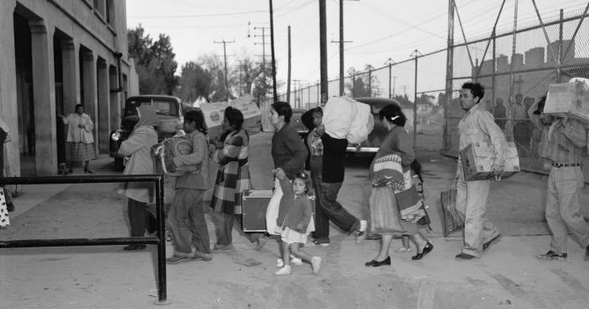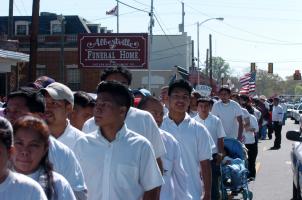We Deported Half a Million People to Mexico in the 1930s. Did It Create Jobs?
Related Episode

Charles E. Young Research Library
Related Episodes
While we were working with Peri, we were all fascinated by a different study he’d just published, about a bit of history none of us had ever heard.
From 1929 to 1937, the United States forced out somewhere between 400,000 and 500,000 people of Mexican descent, in an attempt to protect American jobs during the Great Depression. It’s hard to say exactly, but scholars estimate that at least a quarter or a third of them were American citizens — born in the United States.
Peri’s question was simple. Did the mass expulsion actually result in more Americans having jobs?
Census records show that the United States reduced its Mexican and Mexican-American population by a third. Cities like El Paso, Detroit, and Los Angeles drove people out in a patchwork series of raids that included rounding people up in parks and scanning public employee rolls for Mexican-sounding names. In one case in Los Angeles, a mental health hospital dispatched orderlies as guards to escort mentally ill patients to the border. People now look at this time as a period of egregious civil rights violations.
Giovanni Peri told us, “We are talking of measures that cut the labor force in El Paso, Texas, by one third. In places in southern California, by 15 to 20 percent.”
“Nobody went out and tested: Did this really help the local economy in any way?” Peri said. So he and his team used census data from 1930, 1940, and 1950 to examine 893 cities around the United States and try to find out.
What their findings suggest: The mass expulsion didn’t create jobs. In fact, it did the opposite. The job markets shrank more in places that had expelled more Mexicans and Mexican-Americans. There was actually higher unemployment for the remaining residents in those places.
“That policy,” said Peri “which was very, very painful for the immigrant, did not seem to have had any positive impact on the wage and employment of Americans back then.”
During his campaign, Donald Trump called for the deportation of all undocumented people living in the U.S. — all 11 million of them. Today, the administration is pursuing policies of increased enforcement and expedited removals. In February 2017, in his joint address to Congress, the president said this would raise wages and “help the unemployed.”
Peri’s study shows this was not the result in the 1930s. Peri said, “This debate has been going on for at least 100 years. I would say it has been disproved by the facts for at least 100 years.”
Read the report:
"The Employment Effects of Mexican Repatriations: Evidence From the 1930s"
By Jongkwan Lee, Giovanni Peri, and Vasil Yasenov


